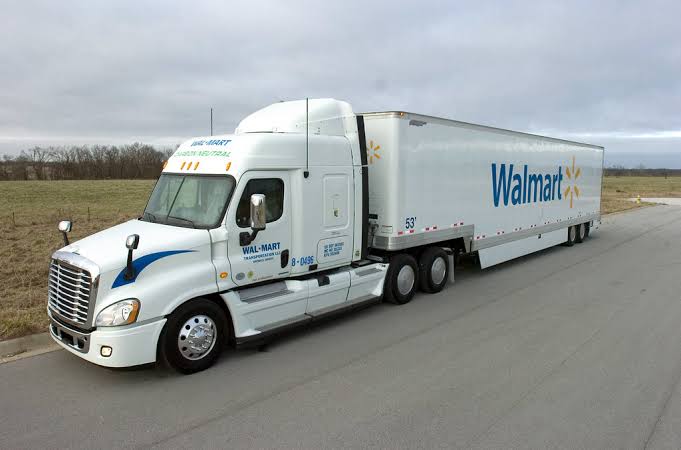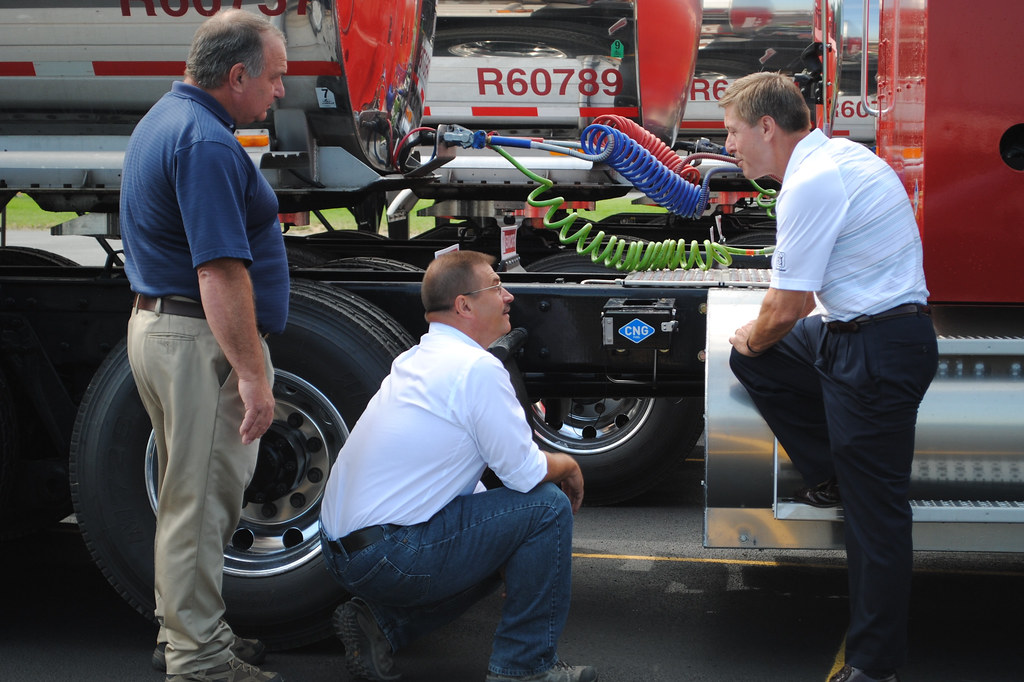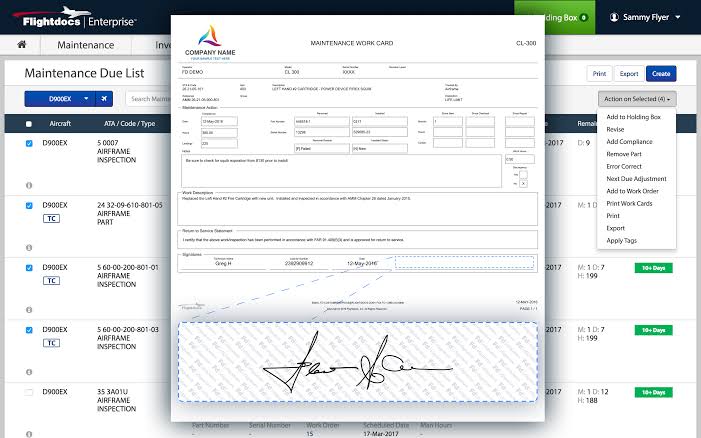
Starting a small trucking business is one of the lucrative businesses that one can do. It can bring an entrepreneur such great returns on investment if done well. While at glance, it looks like a simple business in reality it is not that simple.
It’s common for many people who receive some form of windfall in one way or the other in their diverse careers to try and go for this kind of business. Most of them view it as easy and low-hanging fruit.
There are many aspects of the trucking business that require careful attention before one jumps in the ‘wagon’. In this article, I will reveal ten must-know things before going into the trucking business.
Have The Right Mindset
Trucking requires a unique entrepreneurial framework of thinking. Your approach to it can not be like any other business you can do. There is a wide range of things that can happen to the business within a single day. Some of the occurrences will mess up your bottom line significantly.
On paper, starting a small trucking business may sound straightforward like picking up a load from point A to point B. At the end of the day submit your proof of delivery(POD), and subsequently, get paid. One can easily punch numbers on a calculator and do a quick projection of what they are going to make. However, the reality on the ground is vastly different from the quick calculations. Profit on paper does not in any way mean your business will be successful and smooth sailing. One has to be mentally prepared for the many possibilities in the entire trucking business process.
Be prepared For A Possibility of Things Going Extremely Well
It’s important to be prepared for things going wrong from time to time in the process of doing business. Equally important is the preparation of the right successful mental state. Starting a small trucking business can indeed do extremely well when all things happen according to plan or go beyond the initial projections.
A change in the operational systems of the client or clients can positively and significantly change your business’ bottom line. Many other factors can positively impact your trucking business including the hiring of the right driver or breakdown mechanic. When one is not mentally prepared to handle significant volumes of business it can be overwhelming.
One of the great attributes of great entrepreneurs is the ability to cease and leverage the moment. What you do with little mostly rare ‘surge moments’ of the business is critical. These are opportune moments to help push your business a little further in scope and size. How you choose to do that is really up to your philosophy and plan of business growth. Some will choose to strengthen systems within their business; while others may choose to diversify within the trucking industry. Whatever you choose to do, take advantage of those windfalls to propel the business further.
Put In The Research

Photo by Christina Morillo from Pexels
As mentioned earlier starting a small trucking business is not a coincidence business. There is, therefore, a need for one to be deliberate and proactive all the time. A great deal of the success of the business will always hinge on the knowledge you have about the business. It’s important therefore to put hours of research into starting a small trucking business before you invest your hard-earned money in it.
Seek information and knowledge about the business right to its finest details possible. Knowledge will help you anticipate almost every possible occurrence and ‘surprise’ that you will encounter on the journey; there will be many surprises along the journey.
In your research these are some of the things to take into consideration:
Detailed Business Plan On Starting A Small Trucking Business
It is very common for people who go into this business to just think all they need is a truck or a couple of them, and requisite trailer(s), and then they will be on their way to great success. Such a mindset is a fallacy at its best and ultimately a setup for failure.
To create a structured framework of a business that can be followed and objectively evaluated by any prospective entrepreneur you must come up with a detailed plan. The plan should by and large give the general overview of the proposed business and must carry requisite details for the critical elements of the business.
There are several reasons for drawing up the business plan. A proper trucking business plan will as explained above:
- Give you a framework and scale of your proposed business
- Be the basic and foundational tool for communicating the overview of your business to all potential stakeholders
- Attract strategic partners
- Can easily attract funding for further growth
A detailed plan should ideally have the following:
- Compelling Title
- A quick introduction of the business concept
- A comprehensive executive summary
- A detailed outline and description of each dimension of the business including:
- The Operations
- The Human Resource function
- The Financial Management and
- The Marketing function
A compelling business plan should come with the requisite indexing. You may add other supplementary information that may be required for referencing the main document.
It must of course have a conclusion that can tie up all the major discussion points.
The Projected Budget
As part of the business plan (financial management section) you should have a projected budget for the business. As a basic framework, you could just have one that covers twelve months.
However, if you want to demonstrate your high level of organization you could adopt a five-year plan. The said plan should have room for possible annual adjustments that take into consideration your growth projections.
This document will help you to manage your cost elements and focus on the right priorities throughout your business life. If it’s done well the document should help you to identify almost all the necessary and critical cost items before.
One of the most frustrating things about cost elements is to discover them when you are already committed to the operation of the business. Let me give you a typical example.
“Company A goes into the trucking business of minerals and chooses to buy truck horses and higher trailers. In the budget Company, A projects a certain amount of income every month based on the contract with the client.
Unfortunately immediately after hiring the trailer and arriving at the pickup site the client experiences a plant breakdown that requires a part that has to be ordered overseas. It takes over twenty-one days to get the part into the country. The repairs can take up to seventy-two hours including the commissioning of the plant again”.
If for some reason Company A does not anticipate such an occurrence there will be serious trouble before they even begin the operations.
It’s important that your projected budget picks even the smallest cost elements, and have enough wiggle room for possible loss of income.
Understand the Legislative Framework of the Industry
The trucking business has multiple legislative compliance dynamics that you have to be aware of. Some have to do with the truck and the accompanying accessories while some have to do with the business itself. The rules and regulations, that have to do with the business may be particular to the trucking business and some may be general.
In your research, you should find out all the compliance rules and regulations that will affect your business. The violation of some of the compliance requirements can extremely costly or may just result in your business being closed down.
Your local business associations and organizations may have all that info at hand. Government departments could also help you in a great way especially those directly related to roads and transportation and your client’s industry sector. All you need is to be diligent in your research.
Understand The Major Players and Stakeholders
With every industry, there are critical stakeholders that one must be aware of. In the trucking business, depending on the sector or industry you may be serving there may be variances from sector to sector.
Stakeholders may include among others:
- Other truckers/transporters, competitors, and collaborators included.
- Clients or sector consumers of trucking services.
- Organized labor (unions and associations)
- Banks/finance lenders
- Service providers and support sectors like the fuel companies, automotive repair companies, auto parts, and spares companies, and independent consultants
- The government law enforcement institutions
- The government licensing departments
- Healthcare providers
It’s important to understand the workings of all these stakeholders and develop a healthy working relationship with as many of them as is possible. From time to time as a trucker, you’ll find a reason to deal with one or many of them.
The dealings and interactions are more productive when prior responsibility has been established as well. You may find it more beneficial to approach these stakeholders’ offices before you even require the services.
Identify The Appropriate Trucks
Trucks are not the same and they must be understood in that context. There are different brands and several variations of those brands.
Depending on your chosen business model or market. You could choose to focus on the:
- Industrial materials transportation
- Agricultural produce transportation
- Mining and minerals transportation
- Consumer goods transportation
All the above-outlined markets require different kinds of truck hardware and accessories. Hence the need to prepare accordingly.
The distances involved in your trucking do also matter. Certain truck models do well in short distances and others do well with long distances. The terrain you are to operate in also matters as to which truck brand or model you pick.
Secure Sustainable Contracts
Sustainable trucking contracts are part of the hallmark mix of success in this industry. The lure of excitement about owning huge rigs of trucks can make a novice entrepreneur probably they have arrived. The profitability let alone sustainability of your trucking business is hinged on the sustainability of the trucking contracts.
The sustainability of a contract is based on several factors including among others,
- The profitability of each route on the contract
- The payment structure
- The volumes of the loads in the contract
- The time dynamics of the contract; include span; seasonality, working times, and many more.
It’s important to put your contracts under scrutiny to ensure you are not going into a hit-and-miss arrangement.
Every contract must be profitable, to begin with. There’s no point getting into a loss-making contract.
From time to time as an entrepreneur, you may choose to enter into contracts with tiny margins for strategic positioning purposes. If you know the implications of going in outweigh the temporary little profit scenario in the long term, it will be prudent to take some of the less lucrative contracts.
Again, this hinges on the market research you do. Knowing more than your competitors will without a doubt push you up more than everyone else.
Identify Potential Competitors And Possible Partners
The trucking business is an extremely competitive space. The space has big players that you usually have a great deal of influence in the happenings of the trucking business in a particular geographical location. Going into the trucking business space without understanding who these players are would be naive, to say the least. It’s important to understand the temperament and the general business philosophy of these players to prepare yourself well.
Some of these big players may be accommodative and willing to lend a helping hand to some players. Identifying these particular big players may shorten and smoothen several processes that are required to secure business in this space. These are potential partners in your entrepreneurial journey.
Unfortunately, some big market players are not as accommodative to smaller new entrants. Technically, these are identified as competitors but in reality, when you are just coming into the market you’re nowhere near the level of their game. It therefore also becomes critical that you identify them to develop a strategy in how you conduct or posture yourself around any interactions with them. The strategy is a circumvention one to avoid any possible blows you can suffer if you interface with each other.
Let me just give you a quick example of how some of these players can act.
Prepare for the inevitable trucking pitfalls

In the trucking business like any other entrepreneurial journey, there will be pitfalls. What you can only do as an entrepreneur is to try and develop mitigation strategies around as many possible pitfalls as you can identify.
When you first come into the industry it may be difficult to come up with a comprehensive and reliable list to reduce the occurrence or the impact of those pitfalls. Let’s just list a couple of them that are common:
- Service and maintenance downtime
- Truck Breakdowns
- Client Plant Breakdowns
- Labour issues (disputes, litigations, shortage, productivity)
- Fuel dynamics (shortage; cost; theft; reckless use)
- Theft
- Weather elements
All the above-listed possible operational pitfalls will get the truck off the road and ultimately result in loss of income in one way or the other. If no plan is put in place to deal with the impact of any or a set of them these pitfalls can bankrupt you.
Let’s explore the top three further:
Service and Maintenance Downtime
Service and maintenance of trucks and trailers should not be adhoc but rather carefully planned and scheduled throughout the life of a business. This implies that the costs associated with it should ideally be set aside beforehand.
Depending on the nature of the contracts with your clients the frequency will also vary. Some business contracts run twenty-four hours a day every single day of the week and some run with ample breathers in between.
The ones with a higher frequency of loads will require a higher frequency of service and maintenance. Whatever contract you choose service and maintenance schedule should be attached to that said contract as an appendix item. It’s important to be upfront about avoiding future showdowns with the client.
When the truck is off the road for service and maintenance you don’t only lose income but as said earlier there is cost associated with truck service parts and labor that you have to be prepared for.
Truck Breakdowns
At times the truck will need some attention that is not scheduled and planned. Breakdowns are inevitable in the trucking and logistics business. They do come with heavy costs when they happen.
As outlined above investing in a regular service and maintenance program for each truck is critical to mitigating the major breakdowns.
Breakdowns can happen anytime and anywhere within the range of your transportation routes. At times the breakdown locations can be extremely remote and inconvenient. This is even though such breakdowns can happen in most odd and inconvenient hours of the day.
One of the ways to mitigate the impact of these in your business and personal life is to engage and develop relationships with auto mechanics in the area of your operation. You could also make it part of the contract and include a clause for breakdowns and emergencies while the truck is loaded. Many clients will be willing to meet you halfway in circumstances where you are loaded with their merchandise. They usually will act fast and get the truck back on the road.
The only big con about these remote arrangements is that costs can be extremely high even for small things.
Client Plant Breakdowns
Most of your customers or consumers of your service will be industrial; mining, agri-related; wholesalers, and other such clients. In the process of conducting their day-to-day business, they use heavy machinery. This machinery may be part of or interlinked with the loading and offloading mechanism. Machinery by its nature comes with maintenance requirements and unavoidable breakdowns.
Some of these maintenance and breakdown dynamics can last for days on end. If your truck has to wait for days to load or offload merchandise then your income will be impacted significantly.
If you can secure loss of income insurance for such eventualities the better. The insurance industry now has such products to mitigate such losses. You could help to mitigate losses by seeking other ‘casual’ loading contracts with other smaller clients who may not have enough work for you daily, or as consistent as your other bigger clients.
The Critical Tools and Instruments
To run a trucking or logistics concern you will have several operational; financial and marketing tools to succeed. Several novice trucking entrepreneurs go into the business with a just passion for the function of trucks and “potential” money to make. For that reason, a significant number of them tend to overlook the need to identify the requisite instruments for the success of their business.
Operations
As mentioned earlier the reason for going into this line of business can be off the framework and psychology of running a successful business. Some are in for the passion of trucks some for the promises of tons of money. Here are some of the operational instruments you’ll need to keep grounded
- Route analysis model
- Comprehensive insurance includes:
the truck and trailer insurance; the public liability insurance; the goods in transit (GIT)
- Fleet management tool (must come with tracking capacity).
Route Analysis Profitability Model
Some go into trucking because it’s a passion and the tendency is to then want to treat it like a hobby. This is a business and must be treated as such, hence every contract route must be profitable.
The route analysis model should be the closest tool for any of your business development endeavors. Before you sign any contract you should have a comprehensive route analysis that determines whether the route is feasible and financially viable. A great model should be able to give you a couple of critical route viability indicators including:
- The projected cost of running on that particular route (driver expenses; fuel; truck maintenance )
- The potential profit.
- The number of trips each truck must do to be profitable and sustainable.
- How many drivers you’ll need for each track for the route.
- What are the potential slowing elements/factors?
Click here for a FREE: Trucking Route Analysis and Profitability Model Template.
Comprehensive Insurance
One of the most painful things that can happen to a trucking or logistics entrepreneur is to encounter an accident and have no insurance cover. Accidents are bound to happen in the business of trucking and insurance hence one has to put in place mitigation measures to deal with them.
The entire business venture you have put in blood and sweat can come to an end with just one accident. Therefore getting insured before your first vehicle hits the road can not be overemphasized. Looking at it loosely; insurance can look like an unfair expense. However, you will most appreciate it after a horrific accident. At times in those accidents, you don’t only lose your vehicle but lives can be lost as well. If your driver is on the wrong and other vehicles are involved you will also be liable for the damage on those said vehicles.
The situation gets even worse when you’ve to deal with the loss of human life. The litigations that can follow after such events can go far beyond just the cost of a single vehicle. Your recovery from a road traffic accident loss may take a long time, yet some entrepreneurs unfortunately never recover.
What to look for when picking an insurance
What should you look at when picking an insurance cover is the next question. Good insurance must come from a good and reputable insurance company. The most basic comprehensive insurance must cover:
- Own damage (Truck and Trailer)
- Third-Party Liability
- Public Liability
- Goods In Transit
There are other covers you can elect to include that will ensure you have peace of mind every time every one of your vehicles drives out of or is just parked in your yard.
Familiarise yourself with the small print of the document. A lot of critical stuff can be missed out on in the small print. You’ll only realize some of the print pitfalls the day you put in the claim after an incident.
Some of the restrictions may be buried in small print. As a rule of thumb, you may need to avoid insurance covers that have too many restrictions. You want an insurance plan that will cover you as you work not one that will take you off the road more often to comply with the cover terms.
Fleet Management Software

To be successful in the business of logistics and trucking you must be as efficient as possible, in your operations. The market has several software and instruments that will help even the most novice of entrepreneurs operate smartly.
You can either get one instrument or a set of them that help in the development of a smart trucking experience for all stakeholders. The software or instrument should be user-friendly to reduce the time spent on training and the possibilities of system failure due to human mistakes.
To know more about which fleet management software to chose from check out this comprehensive and well-explained article on the subject.
Have A Driver Employment Framework Instrument
The driver or driver you choose to employ can be the determinant of success or failure in this industry. Unqualified or inexperienced drivers may seem like easy and cheap labor in the short term but extremely costly in the long run.
Click here for comprehensive truck driver mastery training.
Develop a framework of who is going to fit in the template of your entrepreneurial style. Not all drivers are fit for all trucking business styles. Be resolute and upfront with your business style. Some styles are determined by the brands, the kinds, the age of your trucks or loads you’re to be dealing with.
Be clear about the general qualifications and licensing of yo potential drivers. Create a checklist for special qualifications and attributes for specific contracts. Equally so as an ongoing process it’s important to invest in the training and professional development of your staff including your drivers to ensure they perform at their utmost.
Conclusion
When all has been said and done, when you have the correct framework of starting a small trucking business or company success is inevitable. While this article may not have covered all the requisite steps in detail, nevertheless I have given a comprehensive framework from where to start the trucking business journey. A lot more of the details will become clearer as you embark on the various stages and categories listed here. Should you require detailed information on how to navigate some aspects of truck driving and starting a small trucking business check out this instrument.
